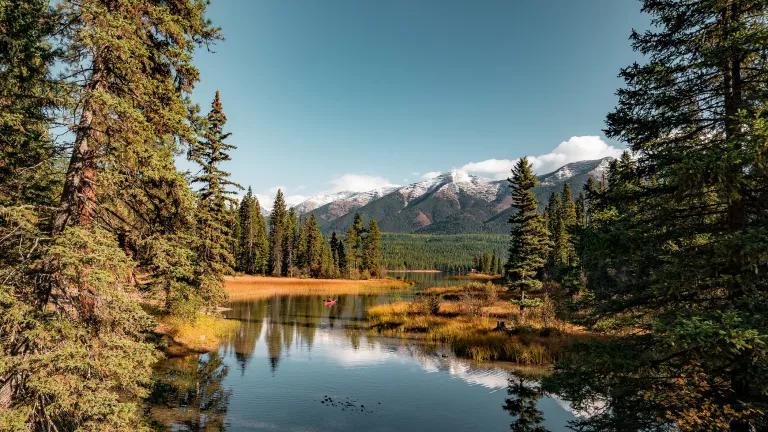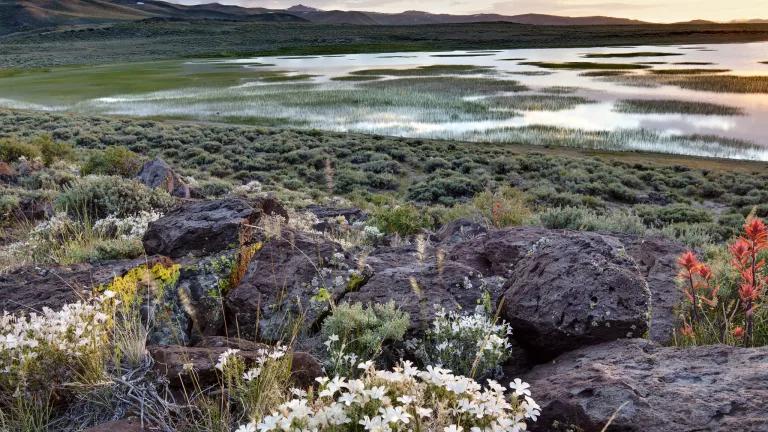Forest Service Allows Loggers, Miners to Sidestep Environmental Reviews
The agency’s latest rollback will undercut science and transparency in determining how our national forests are maintained—all to rubber-stamp logging, mining, and drilling projects.

Flathead National Forest, Montana
The agency’s latest rollback will undercut science and transparency in determining how our national forests are maintained—all to rubber-stamp logging, mining, and drilling projects.
The U.S. Forest Service finalized a sweeping rollback today that will open up national forests to destructive industrial activities by sidestepping environmental reviews.
“Rather than addressing the climate and biodiversity crises we face, the Trump administration continues to make our problems worse,” says Kabir Green, director of federal affairs at NRDC.
The administration’s new rule allows a wide range of proposed projects to bypass the National Environmental Policy Act—a bedrock environmental law that requires public input and science-based assessment of environmental impacts before permits can be issued. Under this rule, projects that cover up to 2,800 acres of national forest land can now be exempted from any meaningful review. These “categorical exclusions,” most of which come with inherent environmental and public health risks, can be applied to projects like logging, roadbuilding, mining, rights of way for pipelines and utilities, and even oil drilling. “Each of these will exacerbate our climate crisis,” Green says.
By bypassing NEPA, the rollback denies impacted communities what is often their only chance to hear about proposed projects in advance and voice their concerns. Those hardest hit by these sorts of projects often live in rural areas where access to healthy forest ecosystems supports livelihoods and defines cultures. Many of these forests are also near the lands of Indigenous Peoples, whose sovereignty and interests are already routinely undermined by the federal government.
The new rule also adopts a policy—currently abused by the U.S. Department of the Interior—that would allow the Forest Service to rely on outdated or insufficient environmental assessments from similar past projects, rather than require a new assessment that addresses the specific risks posed by a specific proposal.
The uptick in industrial logging facilitated by this rule could worsen already catastrophic wildfire seasons. Decades of research show that intense logging—which typically removes the largest, most fire-resistant trees and replaces them with more flammable young trees—can make wildfires more destructive.
Water quality and quantity could take a hit, too: Intact national forests filter out sediment and other pollutants and serve as the single-most important source of clean drinking water for millions of Americans.
While the administration claims that the latest changes ease burdensome restrictions, the Forest Service is already allowed a large degree of flexibility in carrying out emergency projects, and a wide range of exclusions already exist.
“This is yet another blatant attempt to undermine bedrock environmental law and public input, while giving companies free rein over our treasured natural resources,” Green says. “Add this rule to the long list of ill-conceived actions the Biden administration is going to have to toss and redo the right way.”
December 4, 2020: This blog was updated with the number of acres that qualify for the potential exemptions: 2,800 acres.



